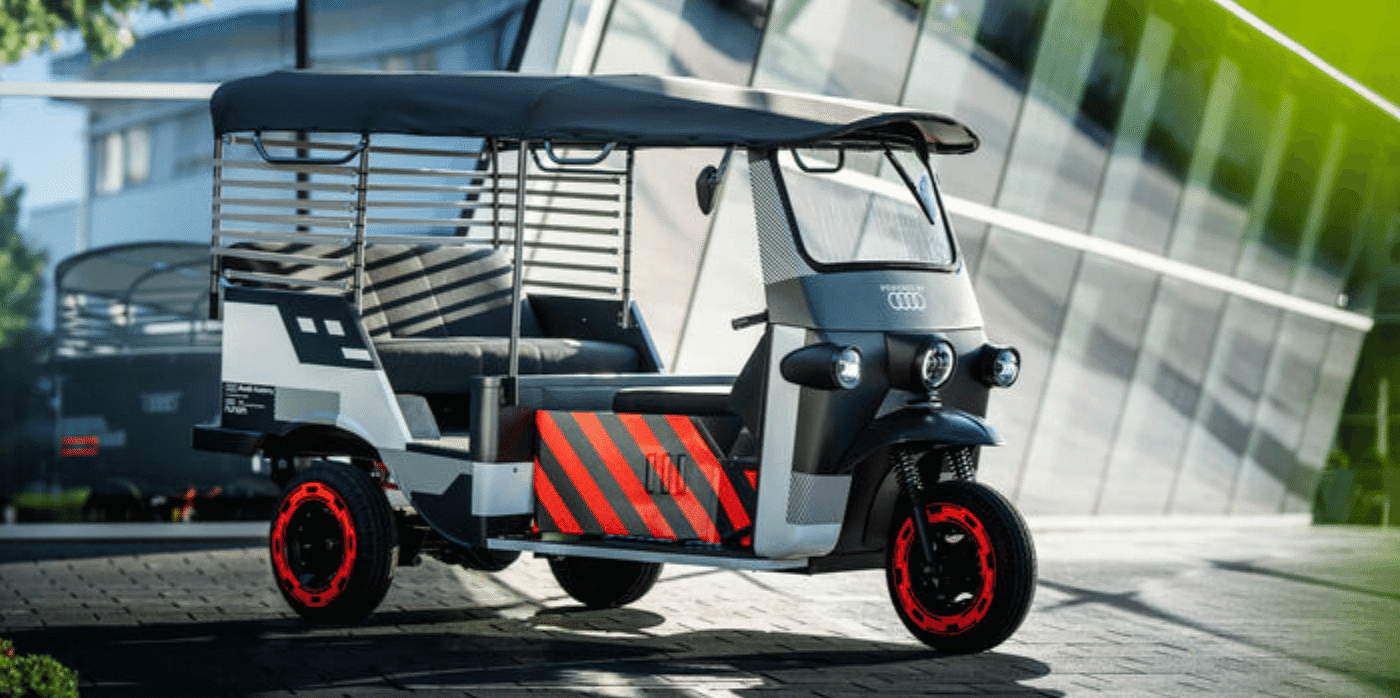Spotted: While electric vehicles certainly release far fewer tailpipe emissions than their internal combustion forebears, the lithium-ion batteries that power most of them face several sustainability issues. One of these is the fact that the average lithium-ion battery is sent to the recycler while still retaining around 70 per cent of its charging capacity. That may not be enough charging capacity for an electric vehicle (EV), but it is enough for other uses. A number of businesses are now popping up to provide a second life for these semi-used batteries. One of these is Nunam.
The non-profit startup based in Berlin and Bangalore is funded by the Audi Environmental Foundation and focuses on developing uses for second-life batteries. Its most recent project, in collaboration with AUDI AG and the Audi Environmental Foundation, is an e-rickshaw powered by used battery modules that spent their first life in an Audi e-tron. The e-rickshaws will be provided to women small business owners in India to use for transporting their goods.
While e-rickshaws are not new to the roads of India, most run on lead-acid batteries, which have a comparatively short service life and are often not disposed of properly – leading to additional pollution. On top of this, most e-rickshaw drivers charge up on the public grid, which gets a large amount of its power from coal. To get around this, Nunam has developed solar charging stations for the rickshaws. During the day, sunlight charges an e-tron battery, and in the evening, the power is passed on to the rickshaws, making local driving largely carbon-free.
Nunam cofounder Prodip Chatterjee describes e-rickshaws as having an ideal eco-efficiency. He explains that, “Car batteries are designed to last the life of the car. But even after their initial use in a vehicle, they still have a lot of their power. For vehicles with lower range and power requirements, as well as lower overall weight, they are extremely promising. In our second-life project, we reuse batteries from electric cars in electric vehicles; you might call it electric mobility ‘lite’.
Rickshaws are just the latest vehicle to join the EV revolution. Their small size makes them perfect for use as EV-powered delivery vehicles. But they are not alone. Springwise has also highlighted other EV delivery or micro-mobility vehicles, including solar-powered tuk-tuks, electric tuk-tuks for use in last-mile delivery, and an autonomous, electric grocery store on wheels.
Written By: Lisa Magloff
4th July 2022
Email: prodip@nunam.com
Website: nunam.com

